- California Assembly OKs highest minimum wage in nation
- S. Korea unveils first graphic cigarette warnings
- US joins with South Korea, Japan in bid to deter North Korea
- LPGA golfer Chun In-gee finally back in action
- S. Korea won’t be top seed in final World Cup qualification round
- US men’s soccer misses 2nd straight Olympics
- US back on track in qualifying with 4-0 win over Guatemala
- High-intensity workout injuries spawn cottage industry
- CDC expands range of Zika mosquitoes into parts of Northeast
- Who knew? ‘The Walking Dead’ is helping families connect
S. Korean won hits 7-year-high against yen
Exchange rate touches below 900 per 100 yen
By Yoon Ja-young
The won touched the highest level against the Japanese yen in seven years and two months Thursday, adding to concerns over its effect on exports.
The Korean currency extended its gains, with the exchange rate falling to a daily low of 902 won per 100 yen during the session on the local foreign exchange market.
It managed to close above the psychologically significant level as the won corrected its earlier gains, closing at 903 won per 100 yen, dealers said.
After reaching its lowest level of more than 1,500 won per 100 yen in and around June 2012, the won has been strengthening against the Japanese currency after Tokyo’s implementation of “Abenomics,” which led to massive quantitative easing.
On top of the Japanese government’s weak yen policy, increasing inflows of dollars for purchases of Seoul stocks helped strengthen the Korean currency, dealers said.
Foreigners have bought more than 3.5 trillion won shares in Seoul this month. The inflow of dollars increases the supply in the foreign exchange market and boosts the value of the won.
A weaker yen negatively affects Korean exporters as it makes Korean goods overseas less competitive against Japanese goods in terms of prices.
Automobile, machinery and IT manufacturers will lose price competitiveness against their Japanese rivals. It also results in decreases in the number of Japanese tourists to Korea.
Korean businesses are expected to see exports decrease 8.8 percent from last year if the average won/yen rate for this year remains below 1,000 won, according to Hyundai Research Institute.
Lee Geun-tae, an economist at LG Economic Research Institute, said the condition will worsen for Korea’s exports.
“A stronger won against the yen has brought down exports to Japan and Europe,” he said. “The negative impact of the weak Japanese yen is expected to increase, as Japanese firms, which previously focused on improving profitability, start cutting export prices,” he said.
Economists expect further strengthening of the won to add an additional blow to already weak exports.
“With falling natural resources prices and chronically sluggish domestic demand, it is hard for imports to increase. The current account will continue to record surpluses for a long time, another factor that will boost the won’s value,” Kang Joong-koo, an economist at LG Economic Research Institute, said in a report.
He said Korea’s share in the world’s export market may decrease.
“When considering the structural problems, it will be difficult for exports to boost the economic growth this year.”
The tourism industry is also expected to take the brunt of the weak Japanese yen. The number of Japanese tourists to Korea has been decreasing since 2012 due to the currency effect. While the figure stood at 3.5 million in 2012, it slid to 2.7 million in 2013 and to 2.3 million last year.
Korean tourists to Japan, meanwhile, numbered 2.7 million last year, the highest number in seven years.







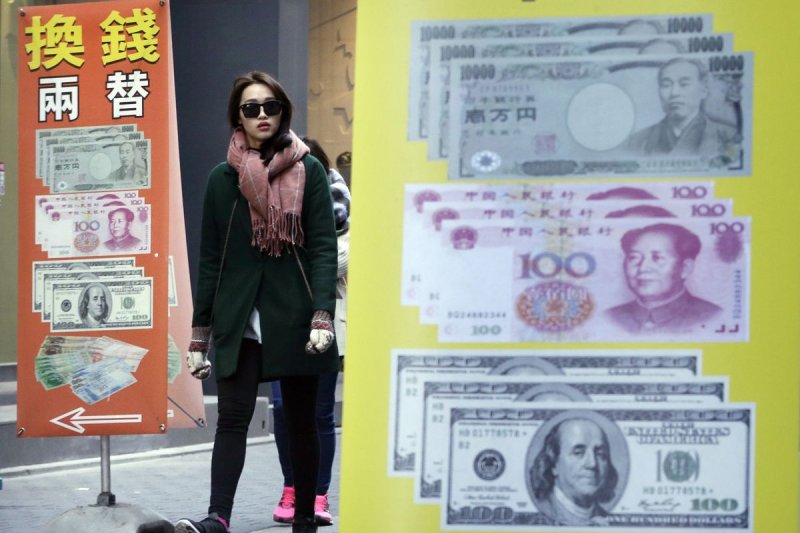
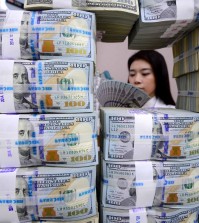
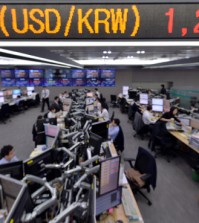
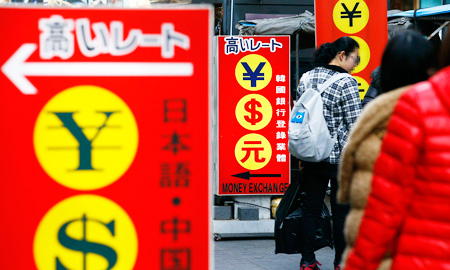
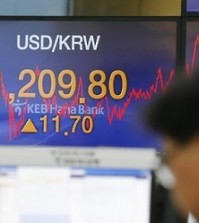

![일본 사도광산 [서경덕 교수 제공. 재판매 및 DB 금지]](http://www.koreatimesus.com/wp-content/uploads/2024/07/PYH2024072610800050400_P4-copy-120x134.jpg)



Pingback: S. Korean economy to gather recovery pace: finance minister – The Korea Times